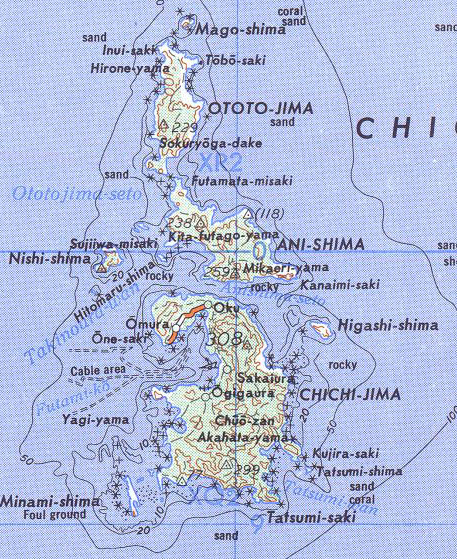World War II was a period of immense human suffering, where the darkest depths of humanity were sometimes revealed. Among the numerous atrocities committed during this global conflict, the Chichijima Incident stands as a chilling testament to the horrors faced by both soldiers and civilians. This tragic event, which unfolded on the remote Japanese island of Chichijima, involved the capture, torture, and cannibalism of American servicemen by their Japanese captors. In this article, we delve into the chilling details of the Chichijima Incident, highlighting the grim reality faced by those caught in the clutches of war.
The Capture
In late 1944, during the Pacific War, a group of nine American airmen were forced to bail out near Chichijima Island after their aircraft was shot down. Rather than finding sanctuary, they became prisoners of war in the hands of the Japanese military. The captured airmen included Lieutenant George H.W. Bush, who would later become the 41st President of the United States. What ensued in the days and weeks following their capture was a horrific ordeal that would leave an indelible mark on their lives.
Torture and Cannibalism
The Japanese captors subjected the American prisoners to relentless and sadistic torture. They were brutally beaten, starved, and subjected to inhumane conditions. However, the most horrifying aspect of the Chichijima Incident was the act of cannibalism committed by the Japanese soldiers. It is alleged that the captors killed and consumed some of the American prisoners.
The details surrounding the acts of cannibalism are harrowing. One of the captives, Lt. Chase J. Nielsen, later recounted witnessing the dismemberment of one of his fellow prisoners, whose liver was subsequently cooked and served to the Japanese officers. The prisoners lived in constant fear, knowing that they could be the next victims of this grotesque practice.
Rescue and Aftermath
In early September 1945, with the end of the war approaching, the remaining American prisoners were finally liberated by U.S. forces. The survivors provided chilling accounts of their experiences, shedding light on the unspeakable horrors they endured at the hands of their captors. The details of the cannibalism became known, further amplifying the shock and revulsion felt by the public.
The Chichijima Incident gained significant attention in the post-war period, but due to the sensitive nature of the events, official investigations were limited. No trials were held specifically for the cannibalism, although some Japanese soldiers were tried and convicted for other war crimes committed on the island during the same period. The full extent of the cannibalistic acts and the number of victims remains unclear.
Legacy and Reflection
The Chichijima Incident serves as a chilling reminder of the depths of depravity that humans can sink to during times of war. It is an indelible scar on the history of World War II, a war already marred by countless acts of violence and cruelty. The incident raises questions about the nature of war, the behavior of soldiers under extreme circumstances, and the impact of dehumanization and brutality on individuals and societies.
Final Thoughts
The Chichijima Incident is a haunting episode that highlights the darkest aspects of war. The acts of cannibalism committed by Japanese captors against American prisoners on the remote island of Chichijima during World War II remain a distressing testament to the horrors faced by those caught in the midst of conflict. Remembering this dark chapter in history serves as a reminder of the need to strive for peace and ensure that such atrocities are never repeated.



